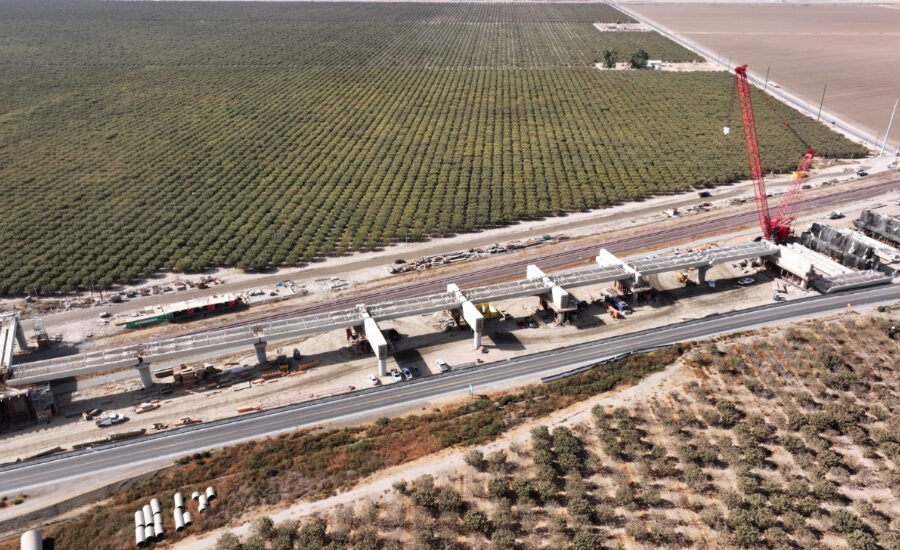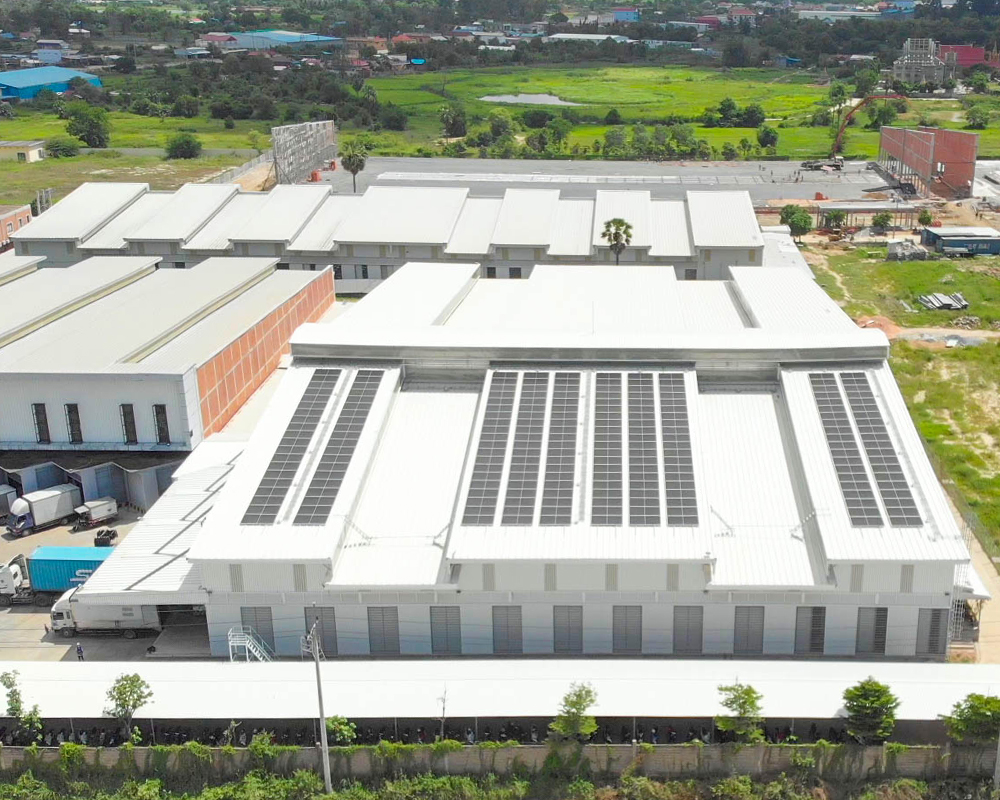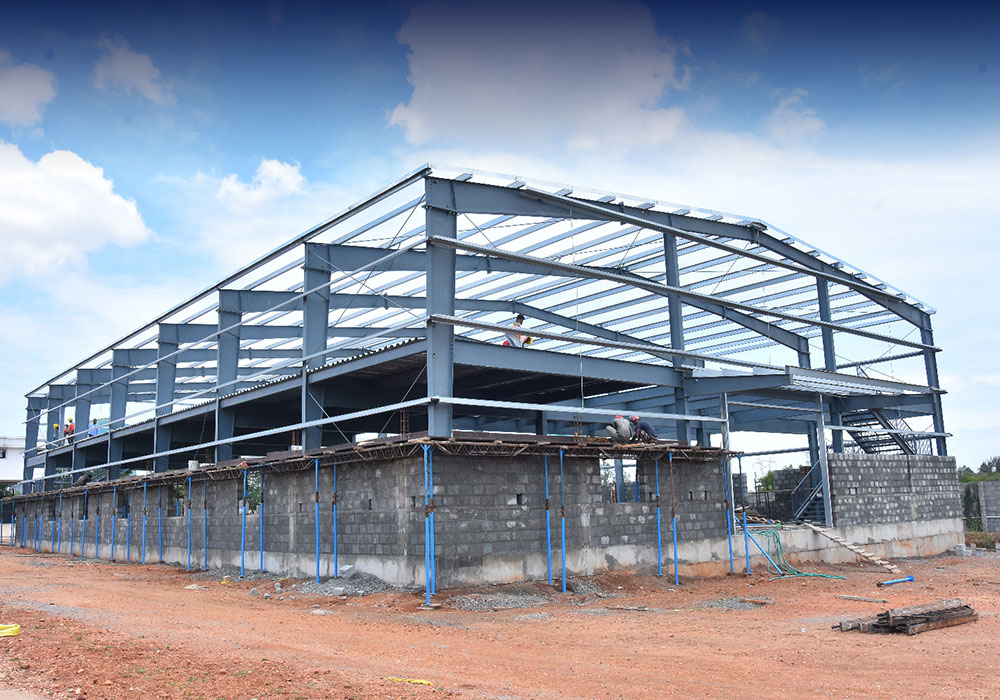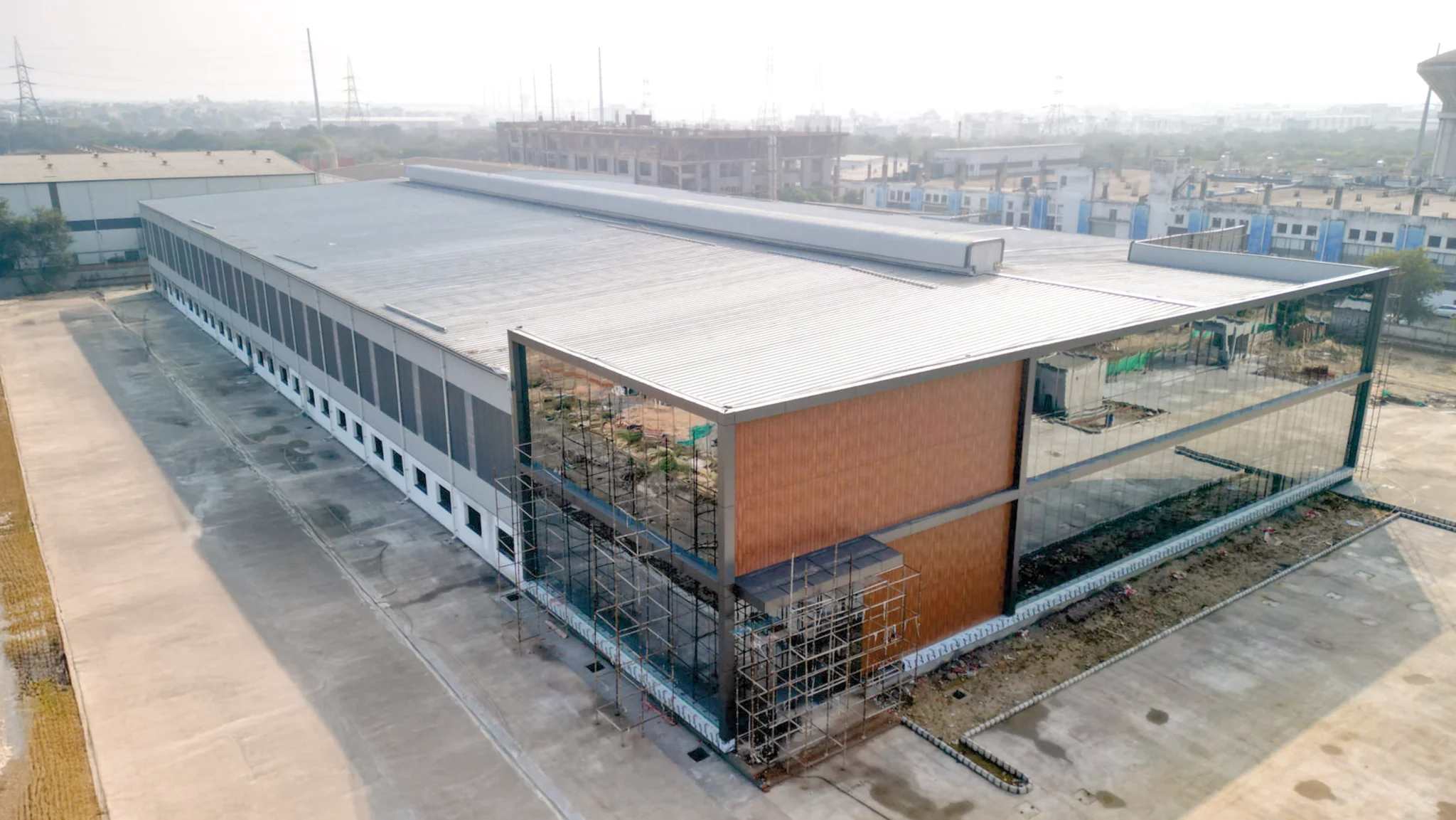
Feds Propose Terminating $4B in California High-speed Rail Grants
[ad_1]

The U.S. Dept. of Transportation’s Federal Railroad Administration doesn’t believe the California High-speed Rail Authority is going to be able to deliver a 171-mile segment of the planned system by its 2033 deadline, federal officials wrote in a report DOT released June 4. FRA officials proposed terminating a pair of grants worth $4 billion as CHSRA is already facing a $6.5-billion funding gap for the work.
FRA officials cited the large number and value of change orders on the project’s construction contracts, a missed rolling stock procurement deadline, the funding shortage and other issues in their report, concluding that CHSRA likely will not be able to complete the early operating segment in time for 2033 as set in a grant agreement, or to complete the full high-speed rail system.
“This report exposes a cold, hard truth: CHSRA has no viable path to complete this project on time or on budget,” Transportation Secretary Sean Duffy said in a statement.
CHSRA plans to build an 800-mile high-speed rail system in two phases. The first phase would be about 500 miles connecting San Francisco to Los Angeles and Anaheim, and the second phase would extend the line north to Sacramento and south to San Diego. Construction is currently underway on 119 miles of a 171-mile early operating segment that CHSRA aims to enter service in 2033.
The cost estimate for phase one is $106.1 billion, a 31% increase from the 2020 cost estimate and a 222% increase from the original $33-billion cost estimate from when California voters approved a ballot initiative for the project. About $6.9 billion in funding has come from federal sources. The grants that FRA has proposed terminating include a $949-million award executed in 2011 and a $3-billion award executed last fall.
The authority “strongly disagrees with the FRA’s conclusions, which are misguided and do not reflect the substantial progress made” on the project, a CHSRA spokesperson said in a statement.
“We remain firmly committed to completing the nation’s first true high-speed rail system connecting the major population centers in the state,” they said.
The majority of the project’s funding has come from the state, and Gov. Gavin Newsom’s budget proposal before the state legislature would extend at least $1 billion in funding per year for the next 20 years, the spokesperson noted. That would provide the necessary resources to complete the initial operating segment, they added.
Deadlines and Change Orders
There are two issues raised in the report that most seriously threaten the grants’ status. First, FRA officials wrote that CHSRA failed to finalize rolling stock procurement by the deadline last December. The agency amended its procurement three times in the last year, pushing completion of the process to July and constituting “persistent non-compliance” under the terms of the grant agreement, FRA officials wrote.
Also, the project has seen “numerous” change orders, according to FRA, which has contributed to cost increases. CHSRA approved more than 1,000 change orders by March 2023, including 20 totaling more than $500 million related to the construction of barriers that are intended to prevent any possible freight train derailments from impacting the high-speed line.
Since the start of 2023, change orders have totaled $1.6 billion in combined value, according to the report, “suggesting that a substantial portion of all payments to contractors are being made outside the original terms of negotiated contracts.” Additionally, FRA officials wrote that CHSRA is in a contract dispute with Dragados/Flatiron Joint Venture, the prime contractor on one of the three Central Valley construction packages so far. Change orders raised the contract’s price by 62% over the initial bid of $1.2 billion for work in the 65-mile segment, and FRA officials said the contract dispute could delay completion of that package by at least eight months to August of 2027.
If the 171-mile early operating segment is not complete by 2033, that could constitute a “material change” that could warrant termination of the grants, according to FRA officials.
“The sheer volume and frequency of these change orders shows waste through an inexcusable combination of poor planning, implementation or mismanagement of contractors, insufficient legal authority and technical expertise, and other factors,” they wrote.
FRA gave CHSRA seven days to provide an initial response and another 30 to provide a corrective action plan if it wants to contest the grant termination.
“Our country deserves high-speed rail that makes us proud—not boondoogle trains to nowhere,” Duffy said.
In their statement, the CHSRA spokesperson said the authority “will fully address and correct the record in our formal response to the FRA’s notice.”
[ad_2]
Source link
Post a Comment
You must be logged in to post a comment.






